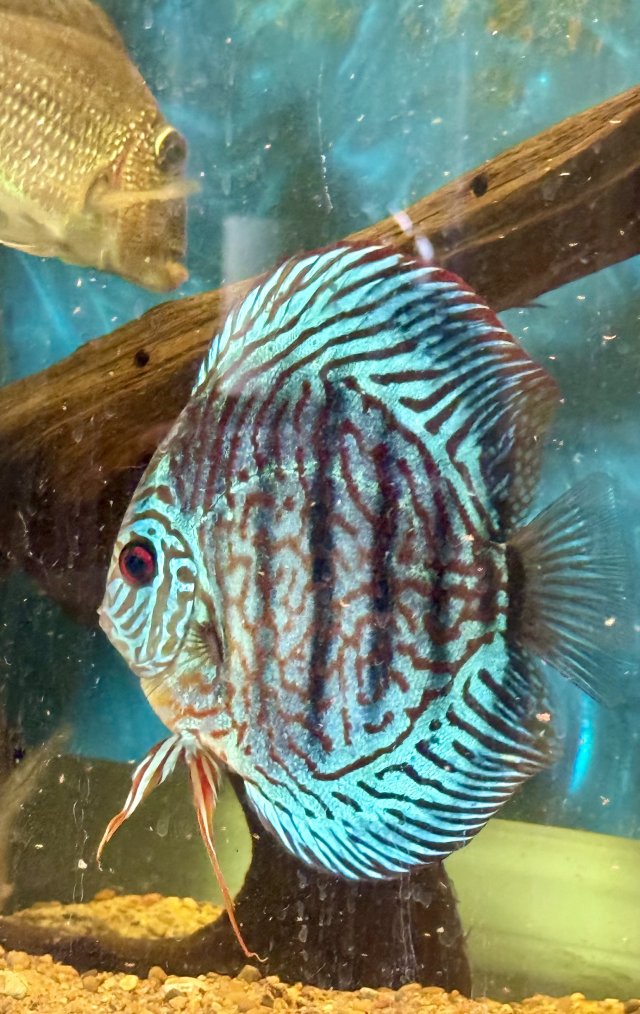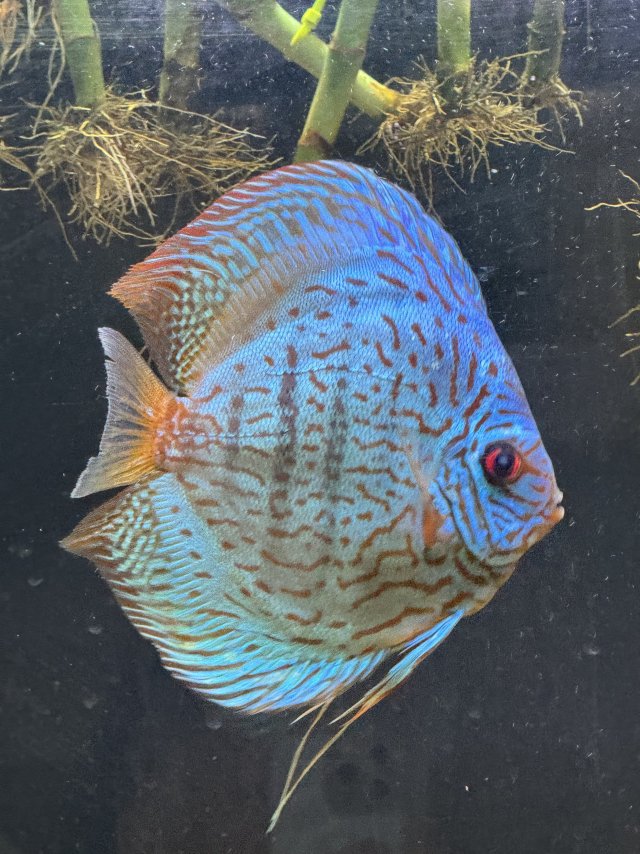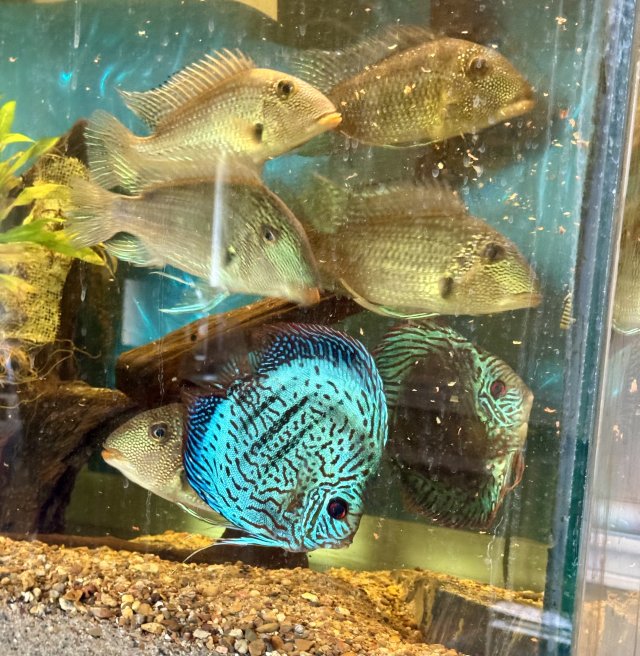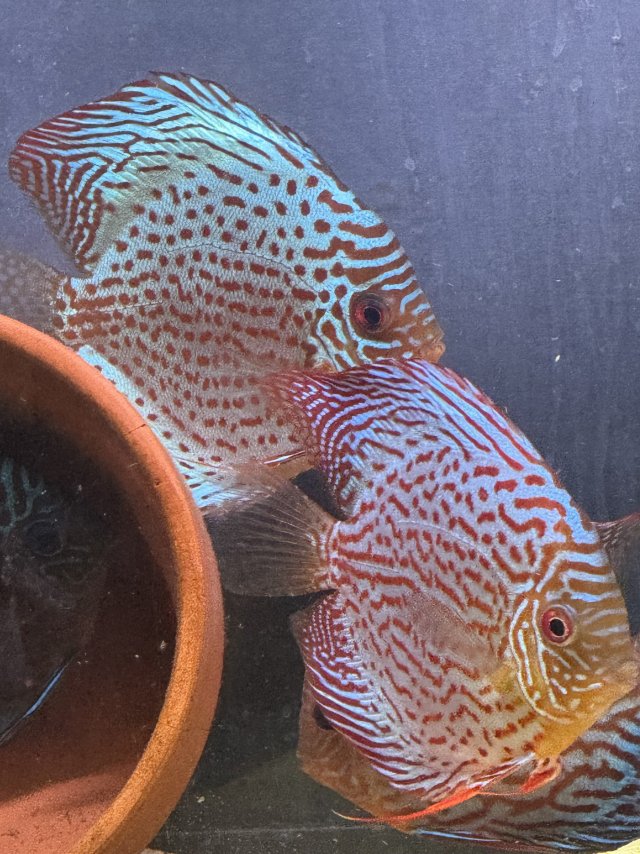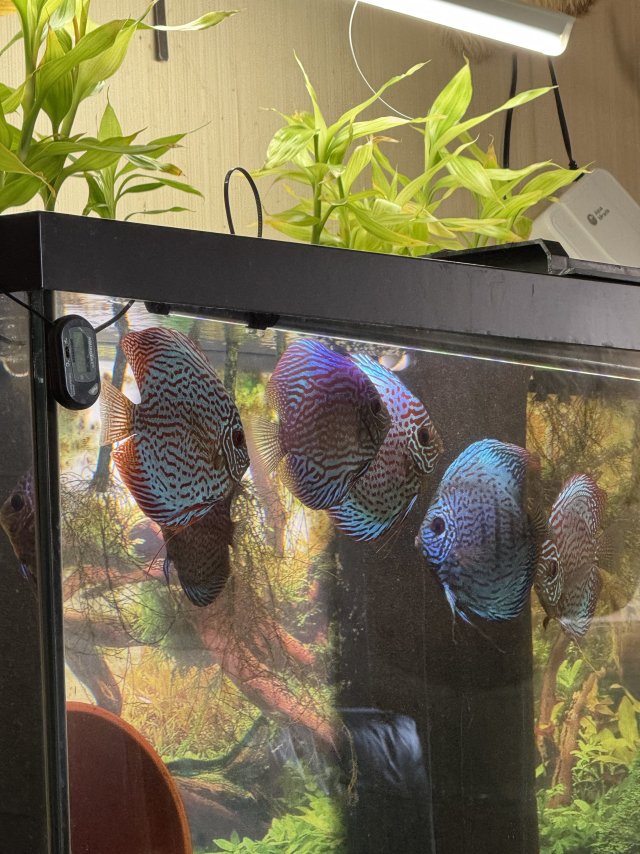I had two 2 year old discus, a “tiger turquoise”, and a “blue turquoise”. They were in a tank with Satanoperca, and got along well. A couple times they seriously considered spawning, but I suspect neither had the qualifications for laying eggs.
Once Blue suffered a bad scrape on his flank, and it didn’t look lethal, but he acted like it might be, turning very dark and not eating. Tiger seemed to take care of him—aggressively chasing the other fish away if they came close to Blue! He recovered in a couple weeks
Then I moved the Satanoperca out, and bought 5 half-grown red turquoise. Blue put on a dramatic show for weeks, with fins extended and colors bright, while ignoring (or chasing) his old pal. Blue chose the largest of the reds for special attention, again seeming interested in spawning.
Tiger seemed to become depressed. He quit eating and stayed in one corner. I tried segregating Blue by himself, putting Blue and Tiger in a tank by themselves, and separating Tiger with one of the reds, but nothing helped. Blue never treated his old friend well again, and after about two months, Tiger died, apparently of depression…
Anyone else have fish show that sort of attachment?
Once Blue suffered a bad scrape on his flank, and it didn’t look lethal, but he acted like it might be, turning very dark and not eating. Tiger seemed to take care of him—aggressively chasing the other fish away if they came close to Blue! He recovered in a couple weeks
Then I moved the Satanoperca out, and bought 5 half-grown red turquoise. Blue put on a dramatic show for weeks, with fins extended and colors bright, while ignoring (or chasing) his old pal. Blue chose the largest of the reds for special attention, again seeming interested in spawning.
Tiger seemed to become depressed. He quit eating and stayed in one corner. I tried segregating Blue by himself, putting Blue and Tiger in a tank by themselves, and separating Tiger with one of the reds, but nothing helped. Blue never treated his old friend well again, and after about two months, Tiger died, apparently of depression…
Anyone else have fish show that sort of attachment?


